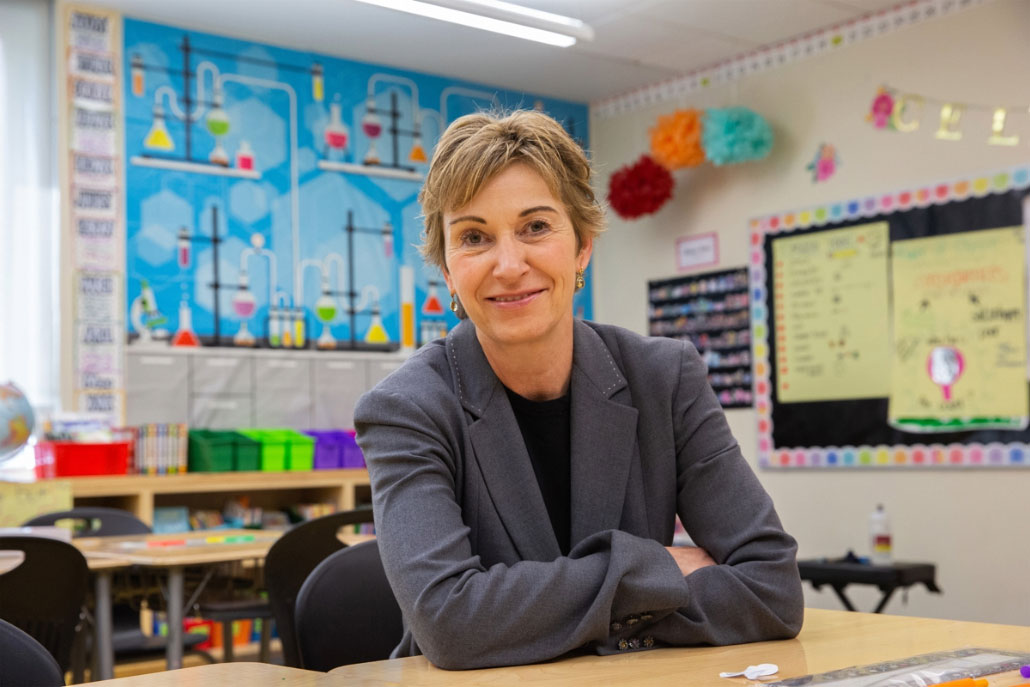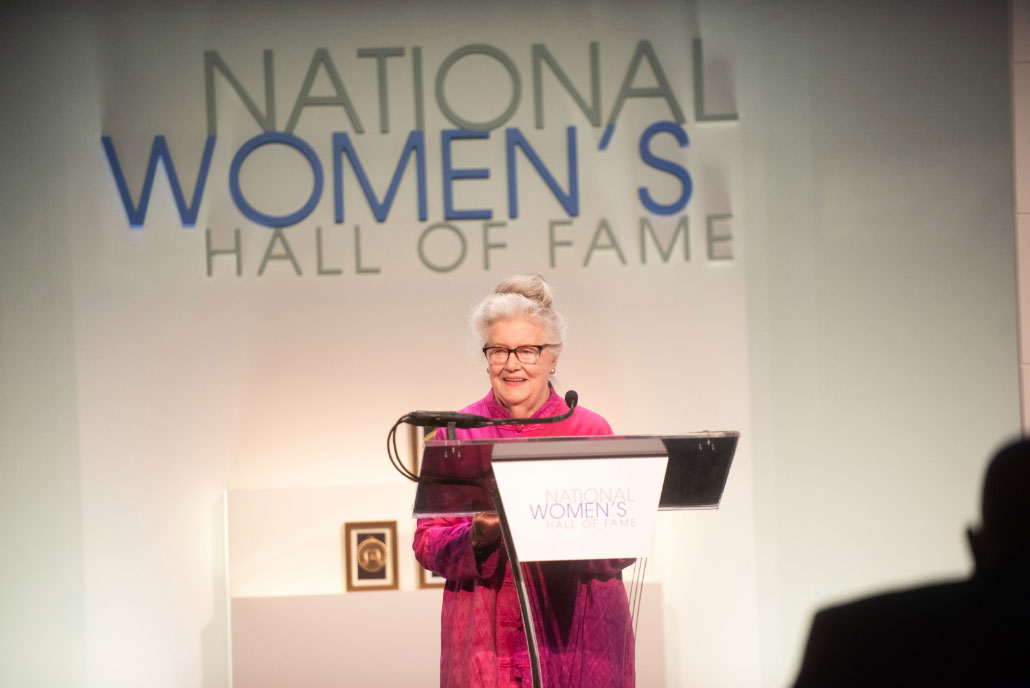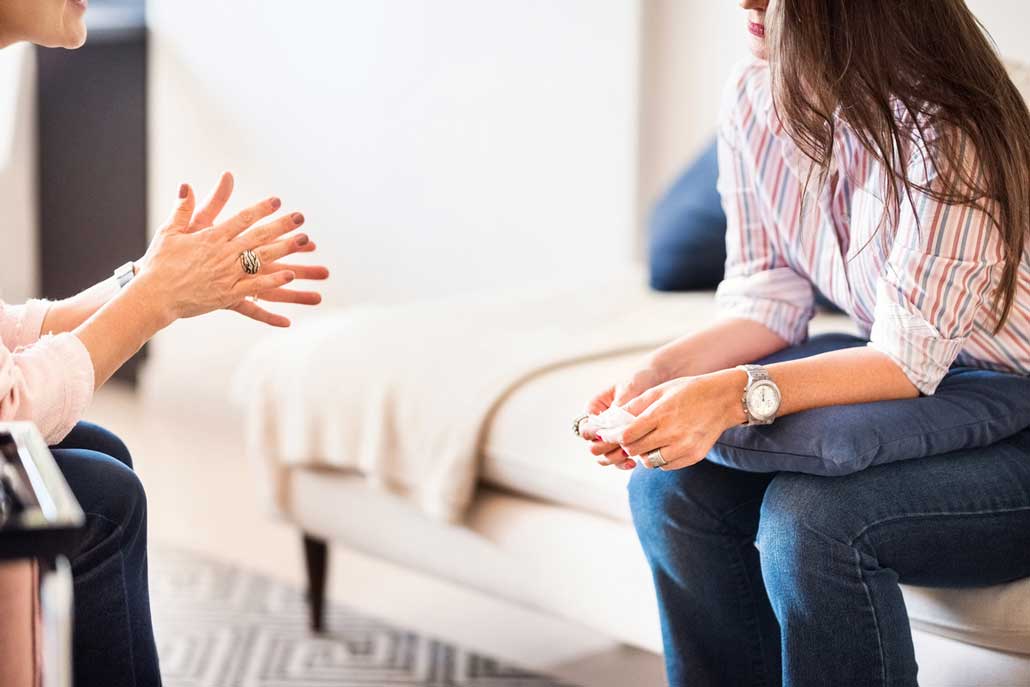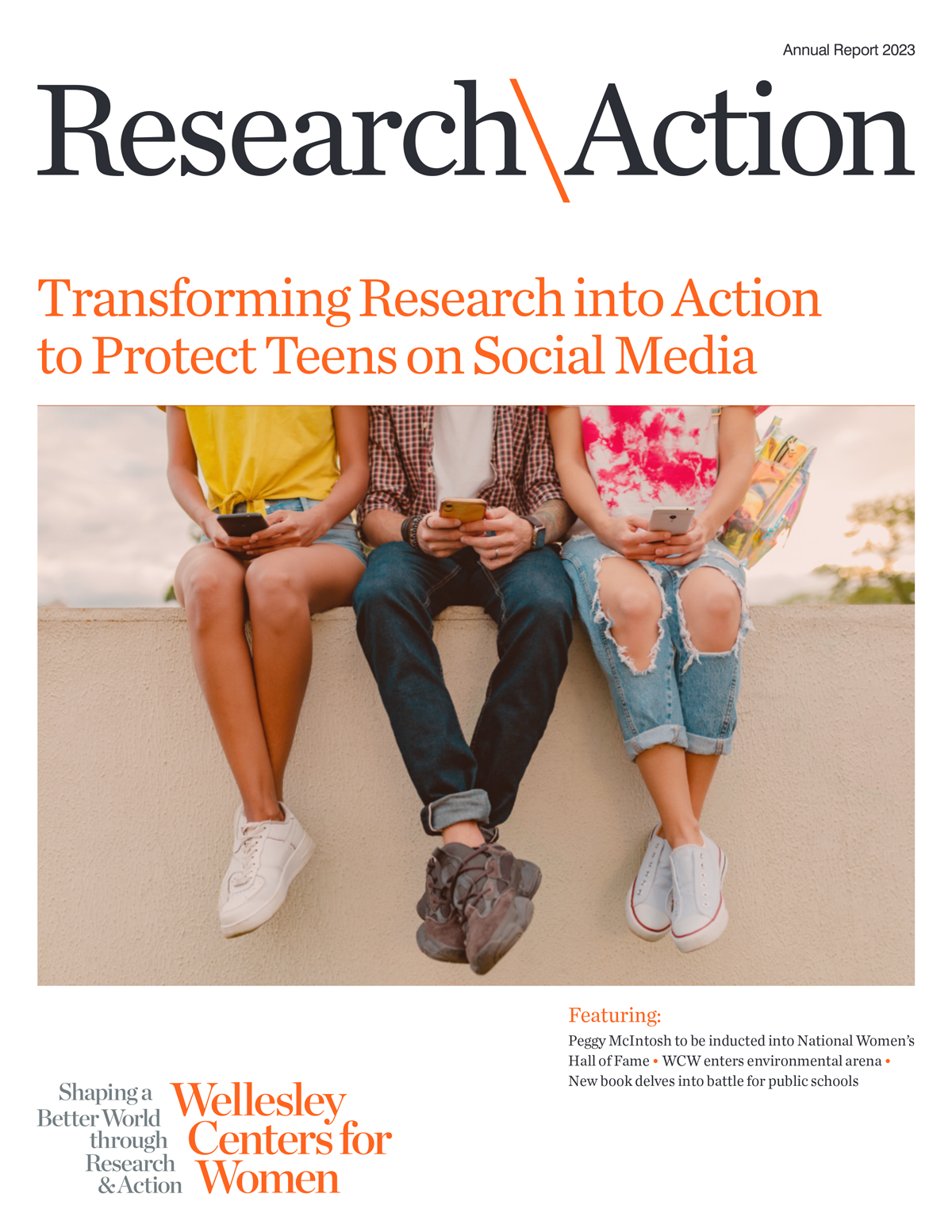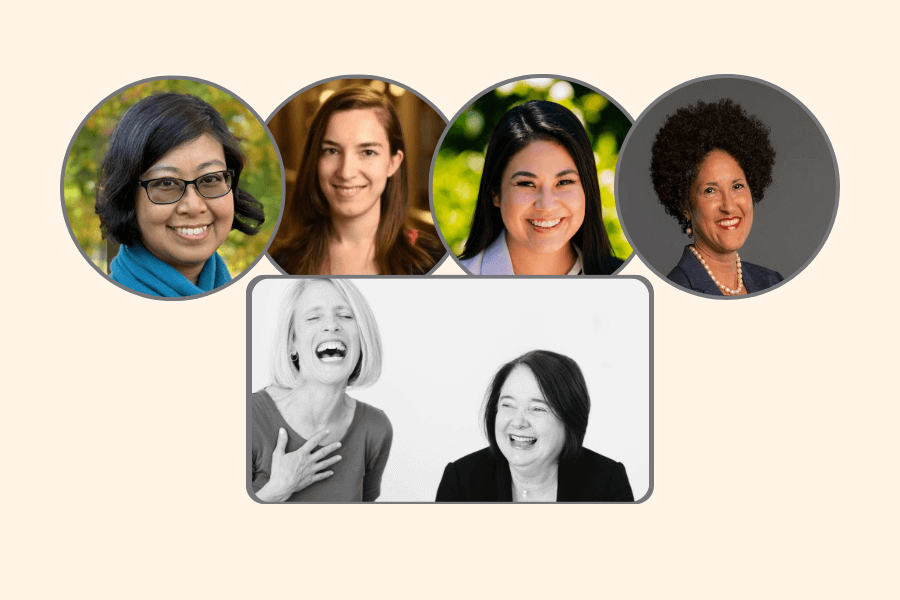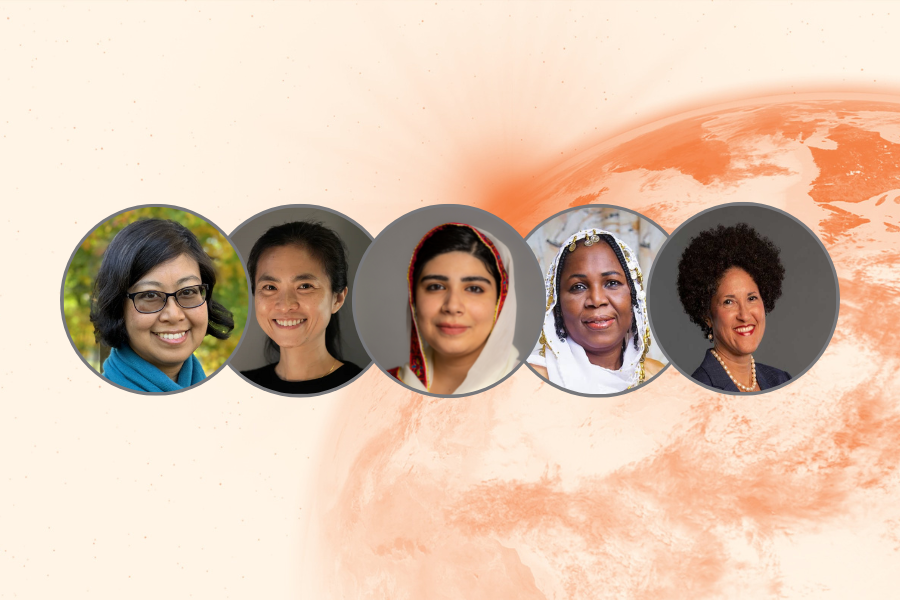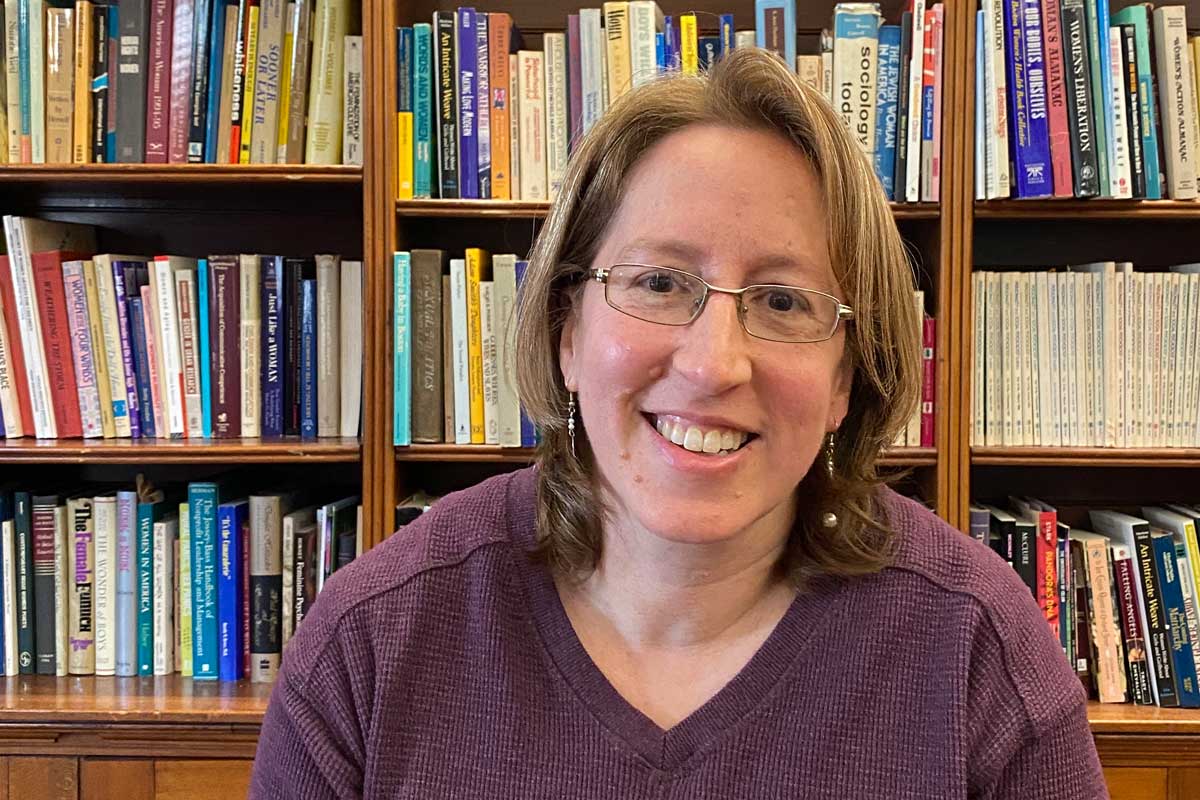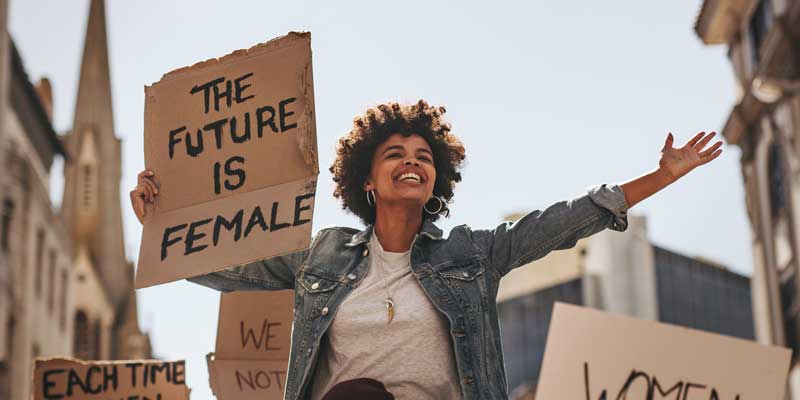UNICEF and the Wellesley Centers for Women (WCW) convened a seminal Asian regional conference, Women and Children: the Human Rights Relationship, December 9-10, 2007 in Bangkok, Thailand. This conference was conceptualized by UNICEF’s Global Policy Section as part of a major initiative on human rights-based approaches to women’s and children’s rights. Rangita de Silva-de Alwis, senior advisor for international programs at WCW, led the organizing of this innovative and dynamic conference that had as its aims and goals an exciting agenda for change on the intersections of women’s and children’s rights.
Research & Action Report Spring/Summer 2008
UNICEF and the Wellesley Centers for Women (WCW) convened a seminal Asian regional conference, Women and Children: the Human Rights Relationship, December 9-10, 2007 in Bangkok, Thailand. This conference was conceptualized by UNICEF’s Global Policy Section as part of a major initiative on human rights-based approaches to women’s and children’s rights. Rangita de Silva-de Alwis, senior advisor for international programs at WCW, led the organizing of this innovative and dynamic conference that had as its aims and goals an exciting agenda for change on the intersections of women’s and children’s rights.
The conference was opened by Susan McGee Bailey, executive director of WCW; Elizabeth Gibbons, chief of Global Policy at UNICEF; and Richard Bridell, Asia representative at UNICEF. As one of the leading women’s research centers, WCW was uniquely positioned to partner with UNICEF’s groundbreaking initiative because of its long history of gender-based analysis and study of the intertwined concerns that affect both women and children. This partnership proved to be very important in mobilizing focus on the critical interface between women’s and children’s rights and galvanizing leaders of women’s and children’s rights in the Asian region to come together to strategize on creative ways to strengthen the linkages between the two rights agendas and to design thoughtful remedies to transcend any resulting challenges.
This Asian Regional Conference represented a historic moment that brought together the chairs of the Committee on the Convention on the Rights of the Child treaty body (CRC) and the Committee on the Convention on the Elimination of Discrimination against Women (CEDAW) treaty body, and all of the Asian regional members of the CEDAW treaty body. All of the participants had led reformist agendas in their countries as law and policy makers, institutional heads, scholars, lawyers, activists, and trail blazers. The keynote speaker, Professor Savitri Goonesekere, was one of the first to pioneer a conceptual framework for linking the two rights agendas. Her scholarship for UNICEF built a rich legacy on which this conference was founded and is reflected in the keynote address included in the program’s full report. Her call to action to “forge a link between feminism and child rights activism in a human-rights based approach” and “the need for collaboration between the treaty bodies of CRC and CEDAW” in a way that advances the recognition of both the “distinct identity and the interface between women’s and children’s rights” animated the vibrant conversations that followed.
The CRC Committee Chairperson, Professor Yanghee Lee, speaking at the celebratory dinner provided in-depth insight into the ways in which the CRC Committee has used its various mechanisms, including published Concluding Observations and General Comments and Days of Discussion, to advance the rights of the girl child who is at the very intersection of women’s and children’s rights. Her comments along with the comments made by the CEDAW Chair, Dr. Dubravka Simonovic, in the second panel provided a pragmatic framework and road map in which to locate the concrete suggestions made at the conference.
The first panel, “Women and Children: the Human Rights Relationship – Setting the Agenda,” moderated by Professor Gooneskere, gathered leaders at the forefront of children’s and women’s issues in Asia: Dr. Saisuree Churikul, a current CEDAW member and a past CRC member and a former senator and lawmaker in Thailand; Aurora Javate De Dios, a former CEDAW member and the founding head of the Coalition Against Trafficking in Women-Asia Pacific; Dr. Heisoo Shin, a CEDAW member and a commissioner of the Korean National Human Rights Commission who was one of the first to bring the world’s attention the plight of “Comfort Women” during World War II; and Shanthi Dairiam, a CEDAW Committee member and the founding head of the International Women’s Human Rights Action Watch-Asia Pacific. The panelists analyzed examples from complex policy-making initiatives in their own nations to illustrate the ways in which women’s and children’s rights are indeed connected but also have their own distinct characteristics.
Panel Two, “Treaty Body Mechanisms in the United Nations: Addressing the Human Rights Relationship between Women and Children,” addressed specific procedural ways in which the CEDAW and CRC Committees can advance their joint work. Moderated by Elizabeth Gibbons of UNICEF-New York, the panel consisted of CEDAW Chairperson Dr. Dubravka Simonovic and CEDAW members Heisoo Shin, Shanthi Dairiam, and Ferdous Ara Begum. The panelists suggested concrete and innovative ways in which the two Committees can collaborate, including several proposed Joint General Recommendations and General Comments.
Panel Three focused on what has become a major issue for both women’s and children’s rights advocates in Southeast Asia: “Migration and its Related Consequences: the Impact on Women and Children.” The panelists were moderator Aurora Javate de Dios; Ferdous Ara Begum; Heisoo Shin; Bangladesh National Women Lawyers Association head, Salma Ali; Thai policy maker, Dr. Juree Vichit-Vadakan; and Charm Tong, the head of the Burmese SHAN Women’s Action Network (SWAN). The panelists highlighted the multiple consequences that the increasing feminization of migration has had on women and their children—some 60 to 70 percent of migrants are now women. The related and interconnected areas of bonded labor and trafficking have also disproportionately affected women and children. Charm Tong, one of Time magazine’s “Asian Heroes,” spoke movingly about her own experiences as a Burmese refugee and about the plight of the Shan community in the face of the militarization of the state.
Panel Four, “Anti-Discrimination and the Elimination of Violence in Legislative and Policy Reform, and Cultural and Traditional Practices Affecting Women and Children,” explored new developments in law reform affecting women and children in the region. It was moderated by Rangita de Silva-de Alwis from WCW who has worked closely with several of the panelists in providing technical assistance to reformist initiatives and brought together women lawyers and lawmakers: Salma Ali; Mu Sochua, the former Minister of Women’s Affairs in Cambodia and Nobel Peace Prize finalist; Danish Zuberi, a Pakistani women’s rights lawyer working at the cutting edge of prevention of sexual violence against the girl child; Sashi Adhikari, a senior attorney with the premier Forum for Women, Law, and Development in Nepal; and Rowena Guanzon, a leading women’s rights lawyer who helped draft the law on anti-sexual harassment, anti-domestic violence, and anti-trafficking laws in the Philippines. The panel resulted in concrete recommendations for thoughtful policy making that would capture the needs of both women and children. Follow-up action must integrate the needs of both women and children in law and practice while being sensitive to the unique and distinctive needs of each constituency.
Panel Five, “Law, Policies, and Budgets,” considered how best to operationalize the principles of women’s and children’s rights. It included moderator Anna Wu, the advisor to Shantou University and the former founding head of the Equal Opportunity Commission in Hong Kong who led legal changes to the girl child’s equal access to public schools, as well as Danish Zuberi, Rowena Guanzon, leading Indian human rights lawyer R. Vaigai, and Dr. Siti Musdah Mulia, an Indonesian Islamic scholar who led the drafting of a model family law (the Counter Legal Draft) based on the principles of equality. The panelists discussed the challenges of integrating the CEDAW and the CRC into laws and into practice. The panelists agreed that it is not enough for states to ratify the treaties; they must also write their provisions into law and support them with policies and budgets. In places like Indonesia and Pakistan, the urgent need is for human rights norms to be reconciled with a progressive interpretation of Islamic law.
Panel Six, “Institutional Mechanisms: Strengthening the Connections,” discussed the institutions, including government ministries and agencies, human rights commissions, courts, tribunals, and other mechanisms, which work to guarantee the human rights of all stakeholders including women and children. The panel was also moderated by Anna Wu and included those participants who lead government agencies and domestic institutional mechanisms relating to women, children, and equality: Dr. Siti Musdah Mulia; Dr. Juree Vichit-Vadakan; Dr. Purificiacion Quisumbing, chairperson, Human Rights Commission of the Philippines; and Dr. Hiranthi Wijemanne, former head of Sri Lanka’s Child Rights Agency. The panelists concluded that these institutional arrangements have an important role to play in advancing the rights of both women and children but are often under-funded and hamstrung by inadequate political will.
The concluding panel focused on “Civil Society Partnerships and Collaborations: the Way Forward.” It sought to examine the ways in which NGOs working on women’s and children’s rights in Southeast Asia could work more closely together and with the CRC and CEDAW Committees. The panel was moderated by Noreen Khan of UNICEF and consisted of representatives of some of the leading human rights organizations in the region: the Asian Pacific Forum on Women, Law, and Development; the Vietnam Women’s Union; Migrant Forum Asia; and the UNICEF country office in the Philippines. Each representative outlined their organization’s recent efforts in the field of women’s and children’s rights. Forward-looking strategies would depend to a large extent on collaborative efforts by civil society groups and within and across intergovernmental and multilateral agencies. The UNICEF Philippine country office’s model of collaboration was an inspiring case study that must be spawned across the board.
The conference closed with the concluding remarks made by Shanthi Dairiam, a CEDAW Committee member whose work on operationalizing human rights treaties in the Asia Pacific Region has had much resonance in the region. While the conference provided the practical impetus and stimulus for furthering a joint agenda for women and children, Dr. Quisumbing’s rallying cry, “This landmark activity of ours cannot die here as sometimes meetings like this do,” was echoed by most of the participants whose groundbreaking work continues to make real on the promise of the conference.

